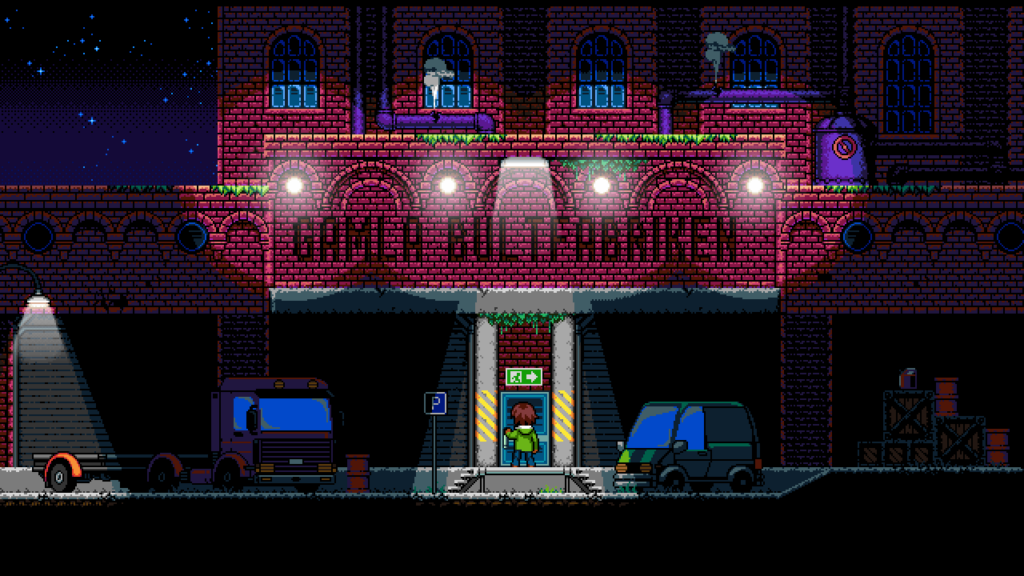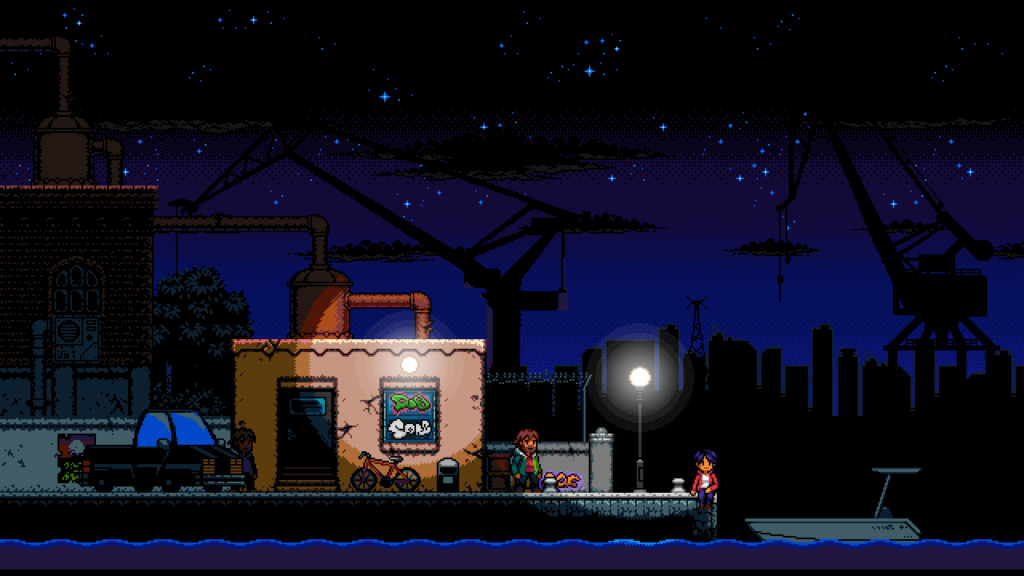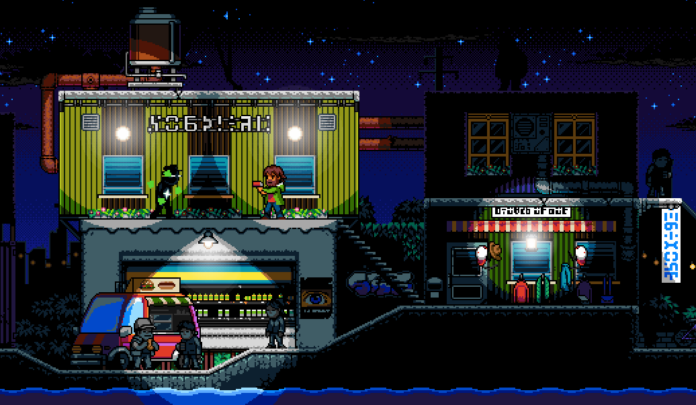In 2016 Mikael Forslind got together with some friends and decided to create their own video game. One year later Alwa’s Awakening was released. What began as a casual endeavor gradually evolved into a fully-fledged studio as the game’s success solidified their path. Now, with the new game A Void Hope coming up on almost 3 years of development, Forslind finds himself juggling his roles as both CEO and Game Designer of his company called Elden Pixels. “Time is limited, so it can be quite exhausting.”
A Void Hope is an atmospheric puzzle platforming adventure set in a world teetering on the edge of collapse. A setting that often leads to a specific kind of gameplay, but the team wanted to create something different. “As video game enthusiasts we’re so used to just going out guns blazing in all video games. But we really wanted to create a unique experience and I really think we managed to do that”, says Mikael Forslind, Lead Game Designer on the project. “The fact that it’s completely lacking violence, gathering resources, destroying or collecting things to gain advance in the game is definitely something we’re proud of here at Elden Pixels.
The moniker ‘Elden Pixels’ wasn’t arbitrarily chosen. Forslind recounts the amusing tale of its inception: “When we first started the company we submitted Team Alwa as a name but that wasn’t approved due to some copyright issues. We tried again and went for Blind Pixels, which we thought was cool. But that was declined too! So on our third meeting about the same thing we almost rushed through and quickly decided on Elden Pixels.” The name, drawn from the Swedish word ‘Elden’, translating to ‘Fire’, felt like the right fit for the team, based in Gothenburg, Sweden. Laughing, Forslind admits he’s happy with the name now: “Even if someone made a game called Elden Ring that messed up our Google Alerts!”
Gazillion choices
At the heart of Elden Pixels’ game design philosophy is the pursuit of simplicity. The team’s debut, Alwa’s Awakening, was even crafted with the limitations of the NES in mind. “I often find limitations can help narrow down all the gazillion choices you have to make when designing games”, says Forslind. The visual style of A Void Hope also thrives by the limitations of the colours used. “We have a very talented artist Alexander Berggren, we normally call him BG, and he puts all the art together. Quite early we decided on utilising very few colours. I’m pretty sure we ended up using only about 64 of them and a palette called Famicube.”

The studio’s current focus rests on their latest project, A Void Hope. The inception of the game’s definitive narrative was nothing short of serendipitous, as Forslind recalls, “The original story was something completely different and I struggled for the longest time to come up with something new that would fit. Often when I can’t fall asleep I lie awake and I come up with ideas.” One fateful night, Mikael’s musings coalesced into a captivating storyline, culminating in the swift creation of a one-page narrative. “Then I went back to sleep and the day after I pitched the idea to the team and they all liked it. So from that one night to the finished story in the game was just a few weeks! I’m very proud of how well it turned out.”
Quite exhausting
However, bringing A Void Hope to life was not without its challenges. Forslind candidly admits the complexities of juggling his roles as both CEO and Game Designer. “When we made our first game Alwa’s Awakening we didn’t have an office, no overhead costs, no nothing really. I could just focus all my energy on creating the best game ever”, he says. “Now with six games released soon, an office, employees, interns and so many things at the same time I really had to set aside time to work with game design. Most of the time it comes from outside office hours but that time is also limited so that’s been quite exhausting.” He quickly adds: “I’m not complaining! Elden Pixels is successful enough to keep on making games and the future is definitely looking bright for us with a few new ideas we want to explore.”

One of the new ideas is acting as a publisher for other indie studios. Before Forslind started Elden Pixels, he worked with publishing and marketing at other game companies so he has plenty of experience in releasing new games. “It’s something that we’re very serious about! With the team we have now at Elden Pixels we’ve pretty much released on all common platforms today, even the NES! We’re interested in other indie games, especially those that either look or feel retro.”
A lot of money, a lot of stress
The team at Elden Pixels aims to never spend too much time on a game. So far they’ve never taken longer than two years for the development of a title. Until A Void Hope that is. “Game development is expensive and working more than two years on a video game, which is the first time we’re doing, costs a lot of money and it adds a lot of stress!”, admits Forlind. “We’re on a good pace to finish the game though. After releasing the demo for A Void Hope, we noticed how many people really enjoy the game. So that is motivating us to make it even more top notch! And that’s what we’re doing now. We hope to announce the release date soon.”

